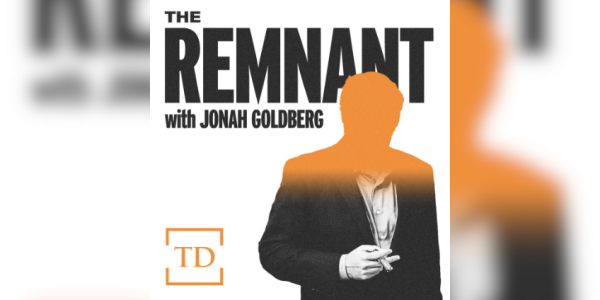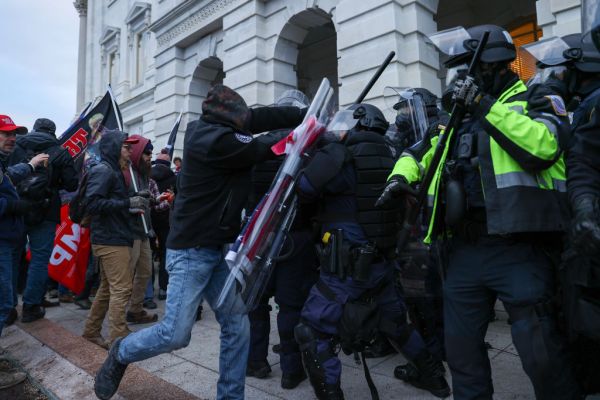Vikings have been having an extended moment in pop culture for the past decade or so. There was Michael Hirst’s creatively titled drama, Vikings, and its sequel, Vikings: Valhalla. There are dopey neo-pagans and Amon Amarth fans out there rowing in the mosh pit and stacks of silly fantasy novels, fashion, grooming products—the works.
Strange thing: There were no Vikings. Vikings were not a thing.
The barbaric alien pagans raiding the English coastline in their horned helmets? Mostly an invention of 19th century Romantic literature. The English had a word for the pirates and settlers from Denmark who gave them so much grief over a couple of centuries before conquering them for good—they called these Danes ... “Danes,” and we still have words such as Danegeld (a tribute payment to a foreign adversary) and Danelaw (an early English exercise in multiculturalism) to attest to that. As late as 1911, Rudyard Kipling was writing about Danes, not Vikings, saying of the custom of paying for peace:
That is called paying the Dane-geld;
But we’ve proved it again and again,
That if once you have paid him the Dane-geld
You never get rid of the Dane.
Not all of the raiders were Danes—there were sundry bands of men from the north known in England as “north men,” or Norsemen or Normans, as we call the ones who settled in France before returning to England to conquer the last of the Anglo-Saxon kings.
Some of them were pagans, but Christianity was in the picture pretty early, too, with the king of Denmark (and, for a time, Sweden) Harald “Bluetooth” Gormsson (yes, the wireless technology is named after him; the Bluetooth logo is a runic version of his initials) officially converting his kingdom to the new faith in the 10th century. They do not seem to have worn horned battle helmets; the few horned helmets associated with that time and place seem to have been religious items rather than martial ones. (Bull-oriented fertility rituals were spread about as far across the ancient world as bulls were, and you can still watch such rituals performed in Madrid or Mexico City to Aire-sur-l’Adour.) They weren’t exotic foreigners, either: The Scandinavians, the Anglo-Saxons, and the Slavs all were fairly well acquainted with one another, and it was a more cosmopolitan world than you might imagine: Cnut the Great, the king of Norway, Denmark, and England, was the grandson of Mieszko I of Poland, founder of the first unified Polish state and father-in-law to the first (more or less) king of the Swedes, Eric the Victorious. There is some suggestion that the people we call Vikings traveled, traded, and settled as far as Baghdad. They were a sophisticated people, both economically and politically.
The howl-at-the-moon barbarians of popular culture, like the modern English word “Viking” itself, are a relatively recent invention. The origins of the word “Viking” are disputed, but what is not in dispute is that the evocative name played an important role—a central role, in fact—in transforming the collection of pirates, traders, slavers, settlers, squabbling potentates, and colonizers of historical fact into the Vikings of legend. A good, simple name gives us a way of simplifying a complex set of facts and making them into something more useful to our busy little brains: a story.
Which brings me, briefly, to my subject: the so-called Deep State.
There is no such thing. As with the Vikings, it is a name invented to make sense of a bunch of different people with different ambitions in different places in different times. There are long-term, unelected government functionaries who naturally develop their own sets of economic and political interests after decades in the same agency or in the same general administrative realm. That employers and employees often have different and fundamentally rivalrous interests is a fact of life known to anyone who ever has had the responsibility of managing people in an organization. But the notion of a unified set of interests acting in concert across dozens of agencies over the course of years or decades is, simply put, preposterous. For one thing, the agencies and the factions within them have rival interests rather than shared interests—the FBI and the CIA famously do not get along, but you’ll also find petty turf battles and political maneuvering placing Defense (to take one example) at odds with Energy, or Agriculture (to take another) at odds with Health and Human Services.
Bureaucratic self-interest is a real thing—the Deep State is an imaginary cabal.
But it is easier and simpler to talk about the Deep State, and Donald Trump and the people around him are nothing if not simple and in search of the easier way. Boot-licking T-shirt peddler, professional sycophant, and (if Trump is permitted to have his way) future FBI Director Kash Patel promises to smash the Deep State, but what he actually has proposed is working to create, for his own ends and those of his masters, something like the imaginary Deep State he rails against: a fully weaponized federal bureaucracy that will be put to political purposes in a simple, brutal, and—inevitably—stupid way.
They are ready to do a lot of damage, but probably not in the way many of their critics expect and fear. The last time around, the Rotten Apple Dumpling Gang and its boss spent the first two years trying to figure out where the keys to the executive toilet were and the next two years promising that they were three weeks away from releasing a health care plan. Trump 2.0 basically has seven quarters to get something done before Washington turns its attention to the midterms, after which it may be difficult or impossible to get anything done at all, particularly if the midterms go badly for Republicans. And Trump has decided to forfeit one or two quarters in order to spend his time rage-tweeting his way through the indefensibly stupid nominations of such bottom-shelf grifters and goofballs as K$H Patel, Dr. Oz, Pete Hegseth (“Dead man walking!”), Tulsi Gabbard, and Robert F. Kennedy Jr., who stands ready to make history as the first felon to serve as HHS secretary, having been nominated by the first felon to be elected president. If the Trump administration gets to September 2026 without having gotten much done, the president’s imbecilic nominations probably will be a big part of that—irrespective of whether they ultimately are confirmed or rejected.
That’s a high price to pay for—at best—a symbolic victory over an imaginary enemy.







Please note that we at The Dispatch hold ourselves, our work, and our commenters to a higher standard than other places on the internet. We welcome comments that foster genuine debate or discussion—including comments critical of us or our work—but responses that include ad hominem attacks on fellow Dispatch members or are intended to stoke fear and anger may be moderated.
With your membership, you only have the ability to comment on The Morning Dispatch articles. Consider upgrading to join the conversation everywhere.